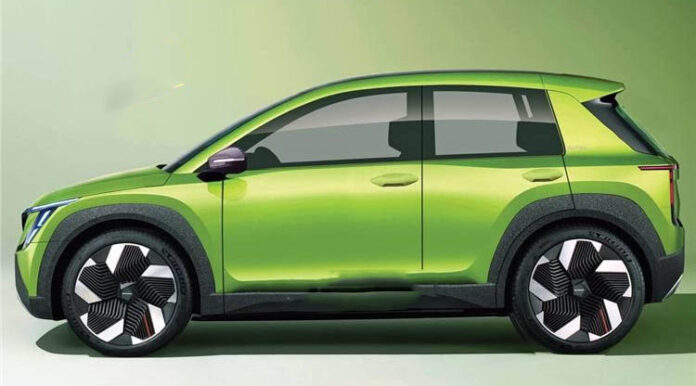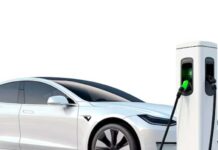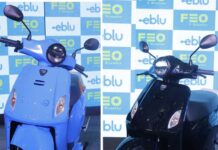
Volkswagen is well on track with the development of the compact electric ‘ID.1’ hatch that will arrive in the next five years as part of a renewed push by European car companies to produce affordable EVs. Using a new bespoke electric platform (MEB21) that will underpin similar models from sibling brands Skoda and Cupra, the ID.1, which VW is aiming to sell for around Euro 20,000 (about Rs 18 lakh), will sit below the production version of the recently revealed ID. 2all concept.
The new platform will be developed by the Volkswagen Group, with Skoda understood to be playing a key role. The model’s name has yet to be finalised.
Battery development is key to lowering the price of the car, with the Volkswagen Group putting a major emphasis on developing unified battery cell technology that can be applied across all its brands and could potentially reduce costs by up to 50 percent. The unified cell is a prismatic cell that can be manufactured with both LFP and NMC chemistries. Using different chemistries with varying properties would allow VW to use the appropriate cell chemistry for different classes of cars.
Hence, entry‐level models could use materials that are cheaper (LFP), but the trade‐off is that they will come with less energy density and can’t be charged as quickly. Production will also be a vital factor in reducing costs. In an interaction with our sister publication Autocar UK, Volkswagen brand boss Thomas Schäfer implied that the model could be built in markets such as India, where the VW Group has a strong production facility in Chakan, and the cost of manufacturing is cheaper.
In fact, industry sources have hinted that work is going full-speed ahead to develop a sub‐four‐metre, India-spec version of the ID.1 for both, the VW and the Skoda brands, for which an India‐specific platform (code: MEB21G) is being developed. Sources also reveal that Skoda will lead the low‐cost EV programme for India in much the same way the Czech automaker did with the ‘India 2.0’ project – which developed and manufactured the Slavia/Virtus and Kushaq/Taigun models. After its learnings from India 2.0 and experience working with local suppliers, Skoda is confident of achieving a high level of local content for MEB21G products from day one.
If the MEB21G project gets the green light, key components, like the electric motor, battery management system (BMS) and battery packs, will be localised. There are no plans to localise the battery cells, which will be imported from Germany. An aggressive target price of under Rs 20 lakh has been set for the VW and Skoda EVs built on the MEB21G platform, but to achieve this price point, even high localisation won’t be enough. Further cost reduction will require culling of the features list, and sources say that the MEB21G cars are likely to be under‐equipped with respect to the competition. “There’s no infotainment system or central screen, and all functions will be housed in and operated from the digital instrument cluster,” said a source.
Another cost‐saving measure is to take advantage of over‐the‐air (OTA) upgrades that all future VWs will offer, with features activated on demand. That will enable the car to be produced at a lower cost and with fewer options, but features can then be offered via subscription service or one‐time payments.
No firm decision has been taken yet by either VW or Skoda to bring the smaller and lower-cost MEB21G platform to India and both brands are looking at all options to meet the target price point, and make the project feasible from a business standpoint.
One option is for Skoda to partner with an Indian OEM to share the cost of developing a grounds-up low-cost EV. It’s a common trend to join hands with another automaker to share development costs, components and technology.
According to industry sources, Skoda is already in a stage of advanced talks with Mahindra for the joint development of a budget EV based on the MEB21G for both Skoda and VW. Mahindra would be the obvious partner for Skoda, as the partnership between VW and Mahindra for the sourcing of EV components – announced a year ago at Mahindra’s annual Independence Day event – has got off to a good start.
Mahindra has secured the supply of the latest generation electric motors (AP550), which promise to set a new benchmark for performance and efficiency, as well as VW’s proprietary unified battery cell technology, for its future EV range on the INGLO platform. In fact, both VW and Mahindra also said at the announcement of their partnership that the scope of cooperation was not limited to sourcing and components, hinting that even joint product development was a possibility.
In India, Skoda has been tasked with leading the development of all future products for the Volkswagen Group, thanks to the Czech automaker’s more favourable cost structure in comparison to its German sister brand. In fact, sources say that an independent study by consultants Roland Berger found Skoda’s cost structure to be more competitive than Mahindra’s! The plan is for Mahindra, Skoda, and VW to build respective ‘top hats’ on the MEB21G platform using common componentry to achieve the desired economies of scale and share the costs of developing the model.
However, the still looming shadow of Dieselgate has made the VW Group doubly cautious when transferring any of its ISA rights or proprietary technology to an outside company. VW’s legal department has the final say in what can, or cannot, be shared by the Group. To complicate matters, though Skoda is taking the lead on the discussions with Mahindra, the MEB21G platform is owned by VW and, as a result, approvals have to be taken from VW if any technical information has to be shared.
Though the intent to further the partnership between Mahindra and the VW Group is strong, the frustrating legal and bureaucratic tangles over the level of technology, and the know-how that can be shared with Mahindra, could become an issue.









